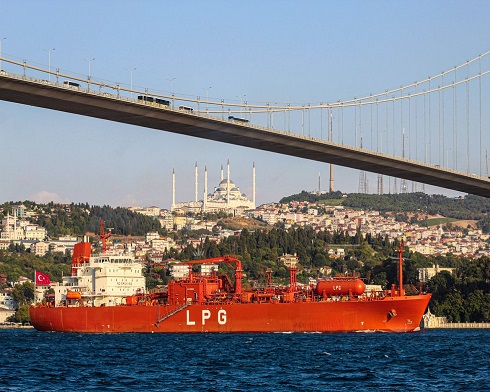A new regulation amending the Regulation on Carriage of Dangerous Goods by Sea has been published in the Turkish Official Gazette (the “New Regulation”). The New Regulation does not introduce material changes but elaborates on the responsibilities and obligations of the parties that are involved in dangerous cargo operations. Some of the main responsibilities and obligations are as follows:
A. Responsibilities of the Carriers
- To have the mandatory documents and information related to dangerous goods ready and available to submit to the authorities upon request,
- To classify, pack, mark, and label the dangerous goods as per their type,
- To ensure that dangerous goods are safely loaded, stowed, and secured to cargo transport units.
B. Responsibilities of the Shore Facilities Handling Dangerous Goods
- To obtain a dangerous goods compliance certificate,
- To employ a hazardous substance security officer authorized by the Ministry of Transport and Infrastructure to monitor the responsibilities,
- To prepare a guideline for handling dangerous goods providing an explanation about shore operations and rules in relation to, amongst others, stowing/handling, loading and discharge of dangerous goods, and publishing the guideline on their website,
- To inform vessels in writing regarding the facility rules and the related legislation,
- To ensure that the necessary trainings are given to the personnel engaged in handling operations,
- To provide an emergency plan for the vessels to be evacuated in emergencies.
C. Administrative Fines
Different from the previous regulation, the New Regulation sets forth new administrative fines that the authority is entitled to impose both on the shore facilities and vessel interests. The following is the non-exhaustive list of the grounds on which administrative fines may be imposed:
- Failure to comply with any of the rules of the New Regulation,
- Failure to obtain reports and certificates from accredited inspection bodies,
- Handling the goods without taking necessary leaktightness precautions,
- Failure to stow and separate the dangerous goods in accordance with the national and international legislation,
- Lack of fire plan certified by a mechanical engineer registered with the related union or failure to keep the equipment listed under the fire plan,
- Lack of necessary electrical equipment, lighting installation or ex-proof equipment,
- Failure to display/install an adequate number of hazard warning signs,
- Failure to have equipment for the emergency shutdown of the loading pump,
Please do not hesitate to contact us for any questions you may have.



